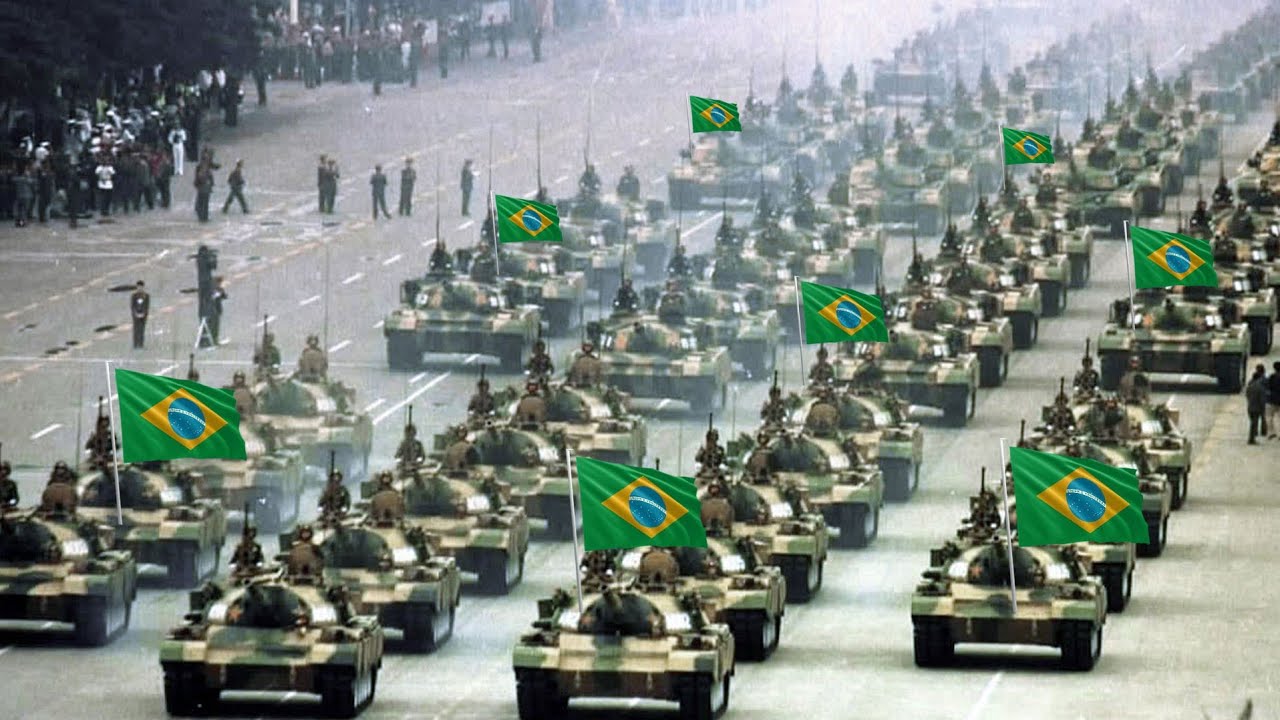RIO DE JANEIRO, BRAZIL – Brazil’s armed forces are preparing for armed conflicts in South America. According to the Ministry of Defense, the region is no longer conflict-free. This is the conclusion reached in the draft for the new National Defense Policy (PND) which the government is submitting to Congress this week.
The new military policy specifies that given regional tensions and crises, Brazil “may be prompted to contribute to the resolution of any disputes or to the military protection of its interests”.

The Ministry of Defense has issued a special warning about escalations in neighboring countries. The focus is on the government of Nicolás Maduro, although no direct mention is made of Venezuela. The document urges that particular attention be paid to the Amazon region with its rich water and ore deposits, and the South Atlantic with its oil reserves. In these areas, espionage, organized crime, and foreign economic interests are threatening the country’s sovereignty. For the first time ever, the PND also cites climate change and pandemics as threats.
The new guidelines under President Jair Bolsonaro represent a paradigm shift from the defense policy guidelines of the preceding governments of Luiz Inácio Lula da Silva (2003-2011) and Dilma Rousseff (2011-2016), members of the left-wing Workers’ Party (PT). In fact, since taking office in January 2019, Bolsonaro has repeatedly engaged in confrontation with neighboring South American countries.
On the other hand, he strengthened the partnership with the US, which in August 2019 appointed Brazil as one of the “most important military partners” outside NATO, enabling the sale of sensitive military equipment. The unsuccessful PT presidential candidate in the 2018 elections, Fernando Haddad, refuted the claim that the region was no longer peaceful. “The military is here to support the US government. Tensions in the region have only been heightened by the election of Donald Trump.”
With the new focus, Minister of Defense General Fernando Azevedo has called for a massive increase in his budget. The current military expenditure “does not conform to the country’s structure,” Azevedo said in early July. In line with the expenditure of the NATO states, he demands that two percent of the country’s gross domestic product (GDP) be made available to the military. At present, the figure stands at 1.3 percent.
Of the approximately R$110 billion that Brazil spent on defense last year, R$80 billion was spent on salaries and pensions. Of this amount, R$47.7 billion was earmarked for pension payments to retired servicepeople. Salaries and pensions have long been a major part of the defense budget. In his first year in office, Bolsonaro increased the military budget by R$6.3 billion in order to pay more and higher salaries.
Haddad criticized the planned increase to two percent of GDP, calling it both anti-social and economically unsustainable. An increase of 0.7 percentage points would correspond to R$50 billion per year. “Why do the military need R$500 billion over the next ten years? This is over half of the pension fund that the Minister of Economy Paulo Guedes wants to save with his pension reform,” said the PT politician.
Brazil’s ex-president Luiz Inácio Lula da Silva criticized the new focus of defense policy, claiming it would violate a principle that has long ensured peace in South America. “It is alarming to see old rivalry theories with neighbors being rekindled, and our armed forces being used for actions that are incompatible with the constitutional principles of non-interference and self-determination of the respective populations,” Lula said on Friday, July 17th.

